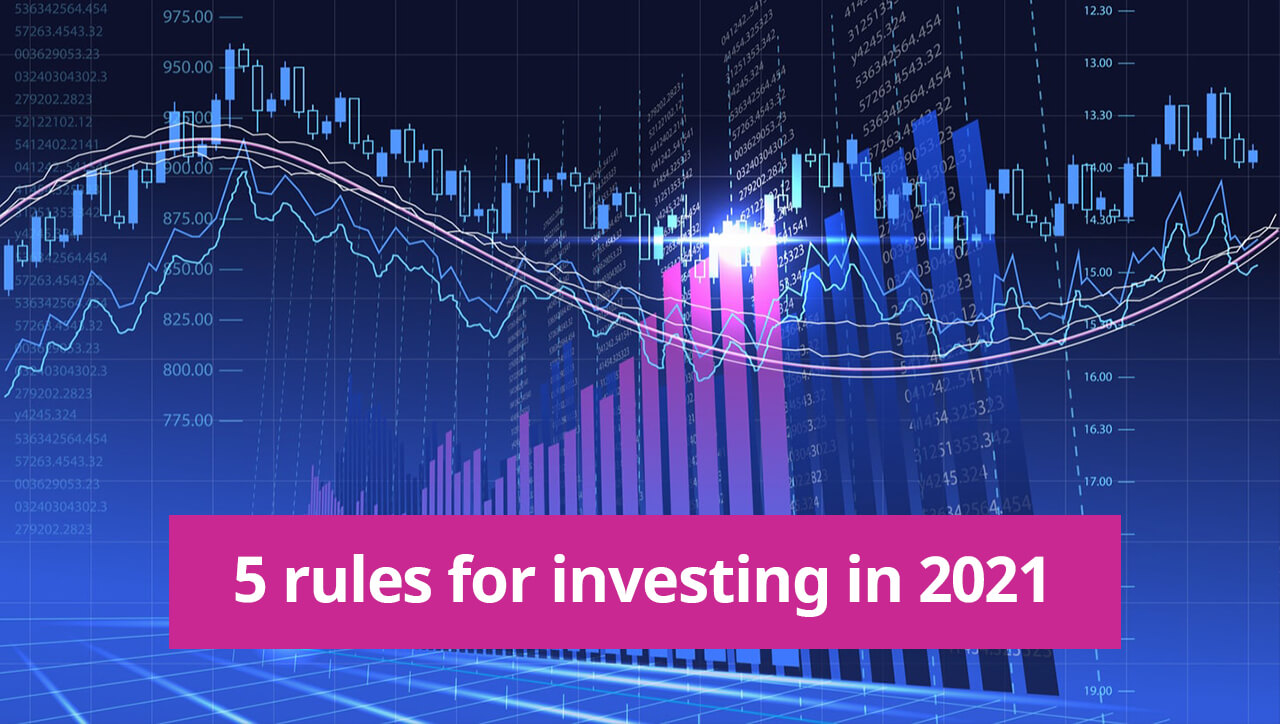Dmitry Donetsky, an analyst at Solid Investment Financial Company, told the BeInCrypto editorial board about what rules to follow in order to maximize the results of investments.
The expert graduated from Moscow State University in 2016 with a degree in political science, specializing in the problems of international trade of the Russian Federation and Italy. Since December 2014, Dmitry Donetsky began to actively engage in the stock market, trading futures and stocks on the Moscow Stock Exchange. Since 2018 he became an analyst and editor of The Wall Street Professional portal of the famous trader and investor Dmitry Cheremushkin. Since 2020, he has been the head of the equity market research department at Solid JSC, and is also the host of the company's YouTube- and Telegram channels. He has been working as an analyst for 3 years, at the same time managing his own investment portfolios.
Below is Dmitry Donetsky's author's point of view on the rules of profitable investing.
Recipe for profitable investments from "Solid" company
There are several recommendations, rules and principles which you can follow to greatly reduce the risk of losing part of your investments. The stock market is a risky investment. If you are just starting out, rely on the recommendations of experts, ask the analysts and managers why they offer this particular security or company.Over time, investing based on professional opinion, you will understand the intricacies of the movement of funds on the exchange. Get started boldly. In the meantime, write down a few rules when buying securities and instruments, and make a checklist for yourself.
1) Know exactly what you're buying
You've probably heard Warren Buffett say that he only invests in businesses he understands. He understands what the company earns and what its business model is. In deciphering the words of the man who made unimaginable $85 billion in the stock market, I recommend paying attention to the following points:
Look at the company's financials: how and what it earns. Indicators are usually published in company reports and presentations.
What is the company's revenue mix.
What is the company's level of debt.
Is the company fairly valued? What is the stake in buying it? On dividends, on growth, or on disclosure of intrinsic value? Conventionally speaking, what do you want? What do you want to make money on?
Under what conditions can the company go up in value, and under what conditions can it go down?
For example, analyzing a company in the oil sector, you want to buy the company's shares at an attractive price when the market is low on oil, counting on future growth, because it is obvious that the state and industry will not give up oil in the near future, no matter what the "green" propaganda. It's an obvious investment in growth - in other words, that's the bet in investing.
Investing in a company whose business is, let's say, fish farming (food production is a business that will never go away - it's always growing), you need to understand that fish is a biological creature, subject to disease, death, which means that your investment at some time may suffer.
In short, if you ask yourself the questions on the checklist and find the answers to them, you will know quite accurately what will happen to your money today and tomorrow.
2) Investing does not equal "buy and hold"
One of the biggest misconceptions I see, even among investors with experience, is to buy and "hold." That is, according to them, investing is about buying once and keeping the paper in your portfolio for many years. And, by the way, many refer to the fact that this is how Buffett operates. Buffett, however, operates somewhat differently, and he also sells shares if he sees that the business is deteriorating, or if the company has exhausted its growth.
If you see the business deteriorating, if you predict changes in the industry (as was the case with Kodak, for example), then sell the stock.
3) Be prepared to lose investment capital
Sounds scary, I agree. But you have to realize that investing is always a risk. In any field: businesses, buying real estate in the crawlspace, P2P loan platforms, paying for your children's education, even getting married is somewhat of a risk. The stock market is no exception.
Just negotiate with yourself at the stage before you invest in papers. If you do not want to take risks - invest in OFZ or take a deposit in a major bank. But such investments are unlikely to provide you with the goal of increasing income from them.
You can understand the business and trends, be very informed, almost professionally conduct transactions, but you can still lose everything. This has happened more than once in my memory. So be prepared to lose your money.
4) Always be prepared for a crisis
Crisis, as you know, comes unexpectedly. You have seen for yourself how quickly the stock market can fall. What does it mean to be prepared for a crisis? It means to have a balanced portfolio - stocks, bonds, foreign currency assets, spare money, with which you can buy more cheap securities. A balanced investment portfolio by assets, companies, and countries will save you money and nerves.
5) Investing is a long horizon
Investing is not a monthly paycheck from the stock market. It's about securing your main goal. Once you start doing it, make it part of your life's routine to delve into the workings of the stock market, reinvest your income, and rebalance your portfolio on a regular basis. Make investing your job. This is the final rule that will help you be confident, secure, and assured in the near and distant future.
Make investing an automatic part of your life - like brushing your teeth. In a year or two or five, you'll be surprised at how far you've come in knowledge, confidence in your future and yourself.






